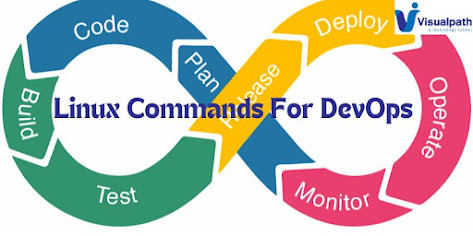Linux Commands

Linux , renowned for its stability, security, and versatility, stands as a beacon in the world of operating systems. Its command-line interface (CLI) serves as a gateway to its vast capabilities, offering users unparalleled control and customization. For those venturing into the Linux ecosystem, mastering fundamental commands is paramount. Let's explore some essential Linux commands to kickstart your journey. ls: The cornerstone of navigation, "ls" lists the contents of a directory. Adding options like "-l" for a detailed view or "-a" to display hidden files enhances its functionality. - GCP DevOps Online Training cd: Short for "change directory," "cd" facilitates navigation through the filesystem. Whether it's moving up a directory ("cd ..") or diving into a specific path, mastering this command is fundamental. - GCP DevOps Training pwd: "pwd" reveals the present working directory, provi
%20in%20GCP%20DevOps.jpg)


.jpg)